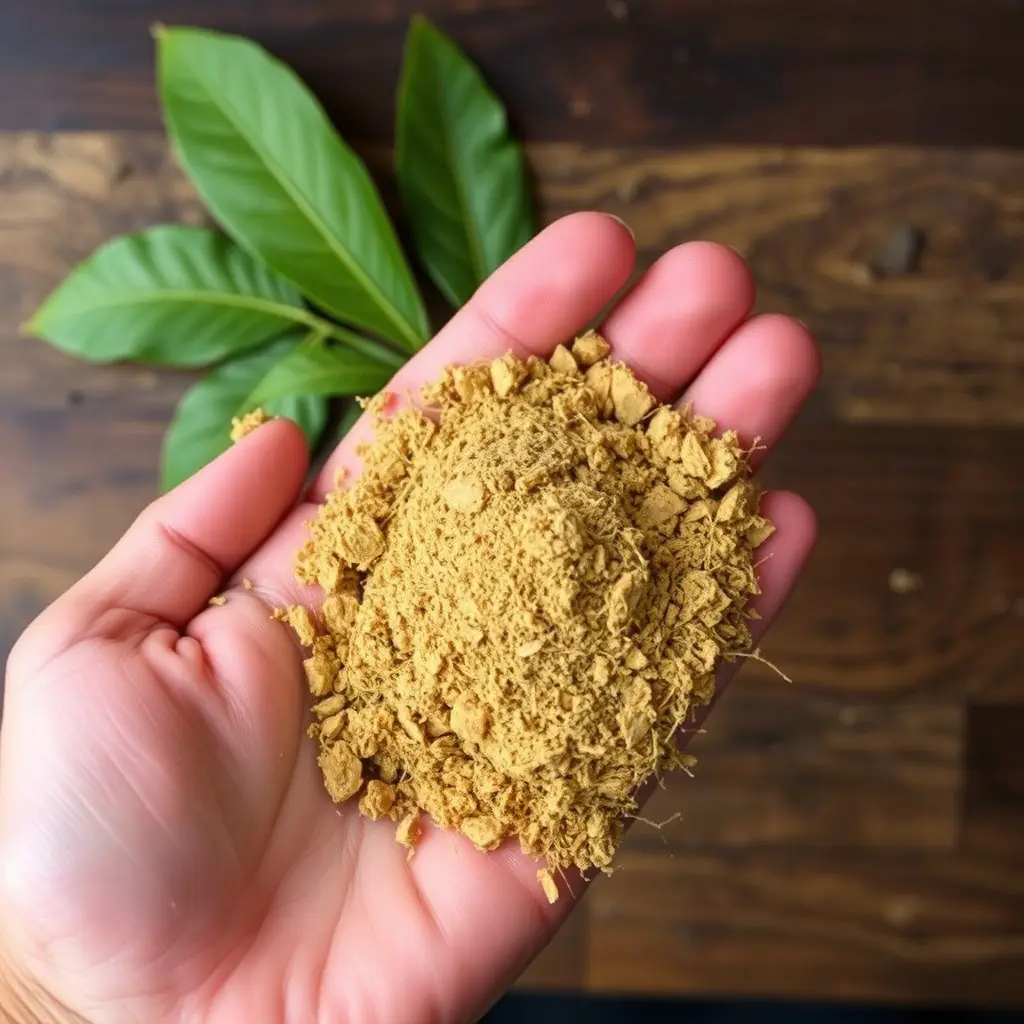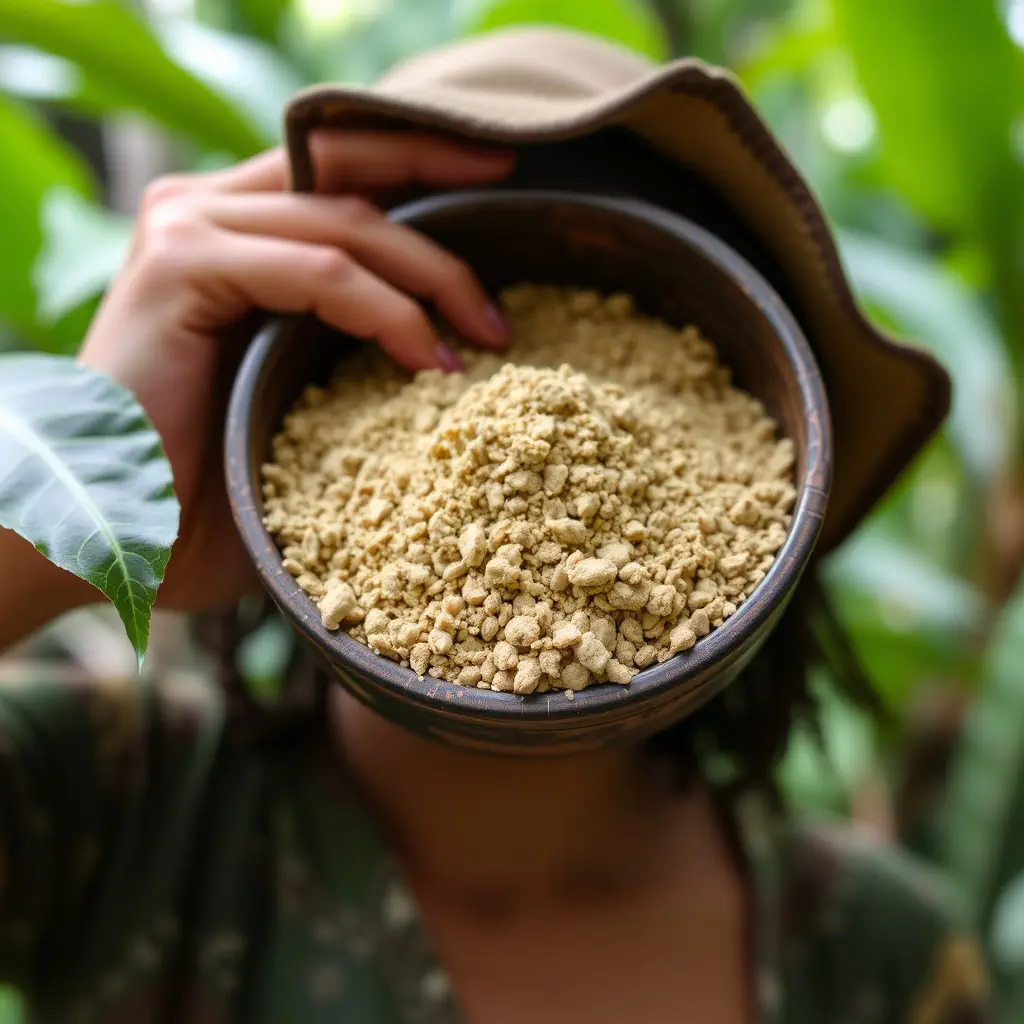The article examines the potential of kratom, derived from Mitragyna speciosa, as a dual herbal remedy for both chronic fatigue syndrome (CFS) and opiate withdrawal. Kratom's traditional use in Southeast Asia for its stimulant and sedative effects has led to its exploration as a natural treatment option. Its engagement with opioid receptors offers a potential alternative to pharmaceuticals, particularly for those transitioning from opiate dependence. The alkaloids 7-hydroxymitragynine and mitragynine in kratom are thought to contribute to its pain-relieving and energy-boosting properties, which may be beneficial for CFS patients. However, the use of kratom as an herbal remedy for these conditions necessitates caution due to its variable effects and the need for extensive scientific research to fully understand its benefits and risks. The legal status of kratom varies by region, emphasizing the importance of consulting with healthcare providers before incorporating it into any treatment plan. For those interested in kratom as an herbal remedy for opiate withdrawal or CFS, a safe and effective approach is contingent on professional medical advice, careful dosing, and its integration within a comprehensive management strategy, keeping in mind the importance of staying informed about legal considerations and individual responses to its use.
Chronic fatigue syndrome (CFS) presents a complex challenge for patients and healthcare providers alike. This article delves into the promising potential of kratom as an herbal remedy for managing symptoms associated with CFS, including its role in alleviating the discomfort of opiate withdrawal in some cases. Through an exploration of kratom’s mitragynine alkaloids and their effects on CFS patients, we aim to shed light on a natural approach to symptom relief. Furthermore, this piece offers guidance on safe kratom usage to help individuals navigate the dual struggles of opiate withdrawal and chronic fatigue. Understanding how to harness kratom’s properties responsibly could pave the way for improved quality of life for those affected by CFS.
- Exploring Kratom's Role in Chronic Fatigue Syndrome (CFS) Management: An Herbal Approach to Symptom Relief
- Understanding Kratom's Mitragynine Alkaloids and Their Potential Benefits for CFS Patients
- Safe Kratom Usage for Opiate Withdrawal and Chronic Fatigue Syndrome: A Guide for Effective Management
Exploring Kratom's Role in Chronic Fatigue Syndrome (CFS) Management: An Herbal Approach to Symptom Relief
Chronic fatigue syndrome (CFS) presents a complex challenge for patients, with symptoms that can significantly impair daily functioning. In recent years, there has been growing interest in the potential of herbal remedies, including kratom, as a natural approach to managing the condition. Kratom, derived from the leaves of Mitragyna speciosa, is known traditionally in Southeast Asia for its stimulant and sedative effects, which may offer relief for CFS patients experiencing fatigue and pain. Research suggests that kratom interacts with the opioid receptors in the brain, providing an alternative to traditional pharmaceuticals for those suffering from opiate withdrawal. Its alkaloid content, particularly 7-hydroxymitragynine, may contribute to its analgesic properties, which could be beneficial for managing the pain often associated with CFS.
While the use of kratom as an herbal remedy for CFS is an emerging area of interest, it is imperative to approach its inclusion in one’s treatment plan with caution. The effects of kratom can vary widely among individuals, and there is a need for further scientific research to fully understand its impact on CFS symptoms. Additionally, the legal status of kratom varies by region, and it should only be used under professional medical guidance, especially considering potential side effects and interactions with other medications. For those exploring herbal remedies, it is crucial to consult healthcare providers to ensure safe and effective management of chronic fatigue syndrome, leveraging kratom’s properties where appropriate within a comprehensive treatment strategy.
Understanding Kratom's Mitragynine Alkaloids and Their Potential Benefits for CFS Patients

Kratom, a tropical evergreen tree native to Southeast Asia, has garnered attention in both traditional and modern medicine circles due to its alkaloids, particularly mitragynine. This herbal remedy, which can be ingested in various forms, including capsules, tea, or powder, interacts with the body’s opioid receptors and offers a range of potential benefits. For individuals suffering from Chronic Fatigue Syndrome (CFS), kratom may present a promising alternative for symptom management. Mitragynine, the primary active alkaloid in kratom, is known for its stimulant and analgesic properties at lower doses, which can help CFS patients cope with fatigue and pain without the side effects often associated with conventional medications. Additionally, another significant alkaloid found in kratom is 7-hydroxymitragynine, which also contributes to its analgesic effects. The synergistic action of these alkaloids can potentially enhance energy levels, reduce discomfort, and improve overall well-being, which are critical aspects of managing CFS.
While the use of kratom as a herbal remedy for opiate withdrawal is well-documented, its application in the context of CFS management is an emerging area of interest. It’s important for patients to approach kratom with caution and under the guidance of a healthcare professional due to its potential for addiction and interactions with other substances. Ongoing research into kratom’s efficacy and safety for long-term use in managing CFS symptoms is essential to fully understand its role as an herbal remedy within this patient population. As such, the therapeutic potential of kratom’s alkaloids offers a promising avenue for patients seeking alternative methods to alleviate the debilitating effects of chronic fatigue syndrome.
Safe Kratom Usage for Opiate Withdrawal and Chronic Fatigue Syndrome: A Guide for Effective Management

When exploring natural ways to manage chronic fatigue syndrome (CFS) and opiate withdrawal, kratom has emerged as a potential herbal remedy for both conditions. For individuals transitioning from opiate use to recovery, the challenge often lies in finding relief from withdrawal symptoms while also addressing the underlying fatigue associated with CFS. Kratom, derived from the leaves of Mitragyna speciosa, can provide support in this multifaceted health journey. It’s crucial to approach kratom usage with caution and knowledge due to its complex effects and potential for dependency. To ensure safe kratom usage, individuals should start with low doses and consult with a healthcare provider before integrating it into their management plan. The alkaloids present in kratom leaves, primarily mitragynine and 7-hydroxymitragynine, can help alleviate opiate withdrawal symptoms such as anxiety, muscle aches, and insomnia. Additionally, for those suffering from CFS, certain strains of kratom may offer an energy boost that can aid in increasing daily activity levels without exacerbating the condition. It’s important to monitor individual responses to different strains, as well as dosages, to optimize benefits and minimize adverse effects. Users should also be aware of the legal status of kratom in their region, as regulations can vary widely and impact accessibility. By following a guide for effective management, individuals can safely explore the potential benefits of kratom as a herbal remedy for opiate withdrawal and as a complementary approach to managing chronic fatigue syndrome.
In conclusion, the potential of kratom as an herbal remedy for managing chronic fatigue syndrome and its role in providing relief from symptoms has shown promising avenues for exploration. The mitragynine alkaloids found within kratom may offer significant benefits for those suffering from CFS, potentially complementing traditional medical treatments. However, it is crucial to approach its use with caution, adhering to safe usage guidelines to avoid any negative interactions or complications, particularly for individuals undergoing opiate withdrawal. As research continues to evolve, careful consideration and oversight by healthcare professionals are essential to determine the efficacy and safety of kratom in CFS management. This holistic approach underscores the importance of considering natural alternatives alongside conventional therapies for a comprehensive treatment plan.






